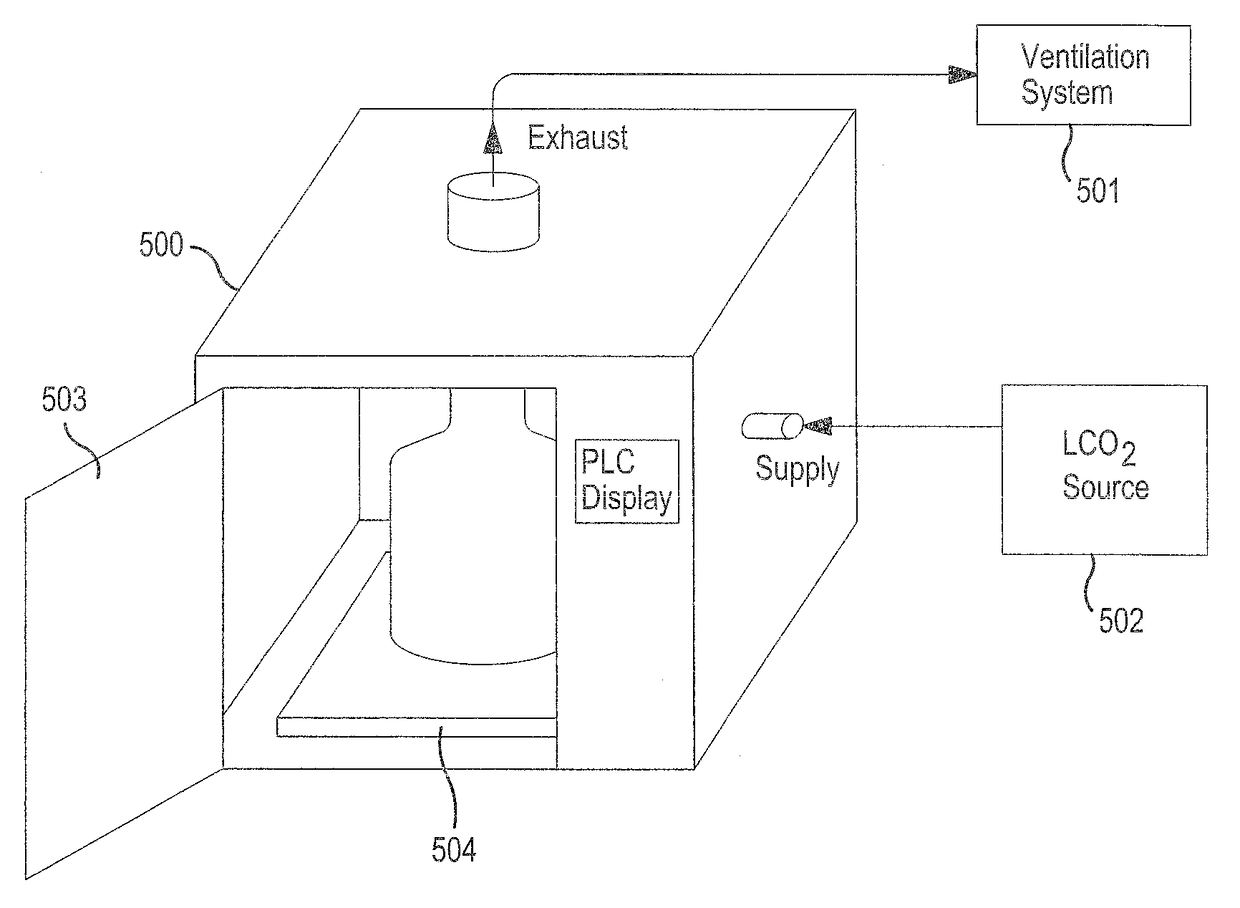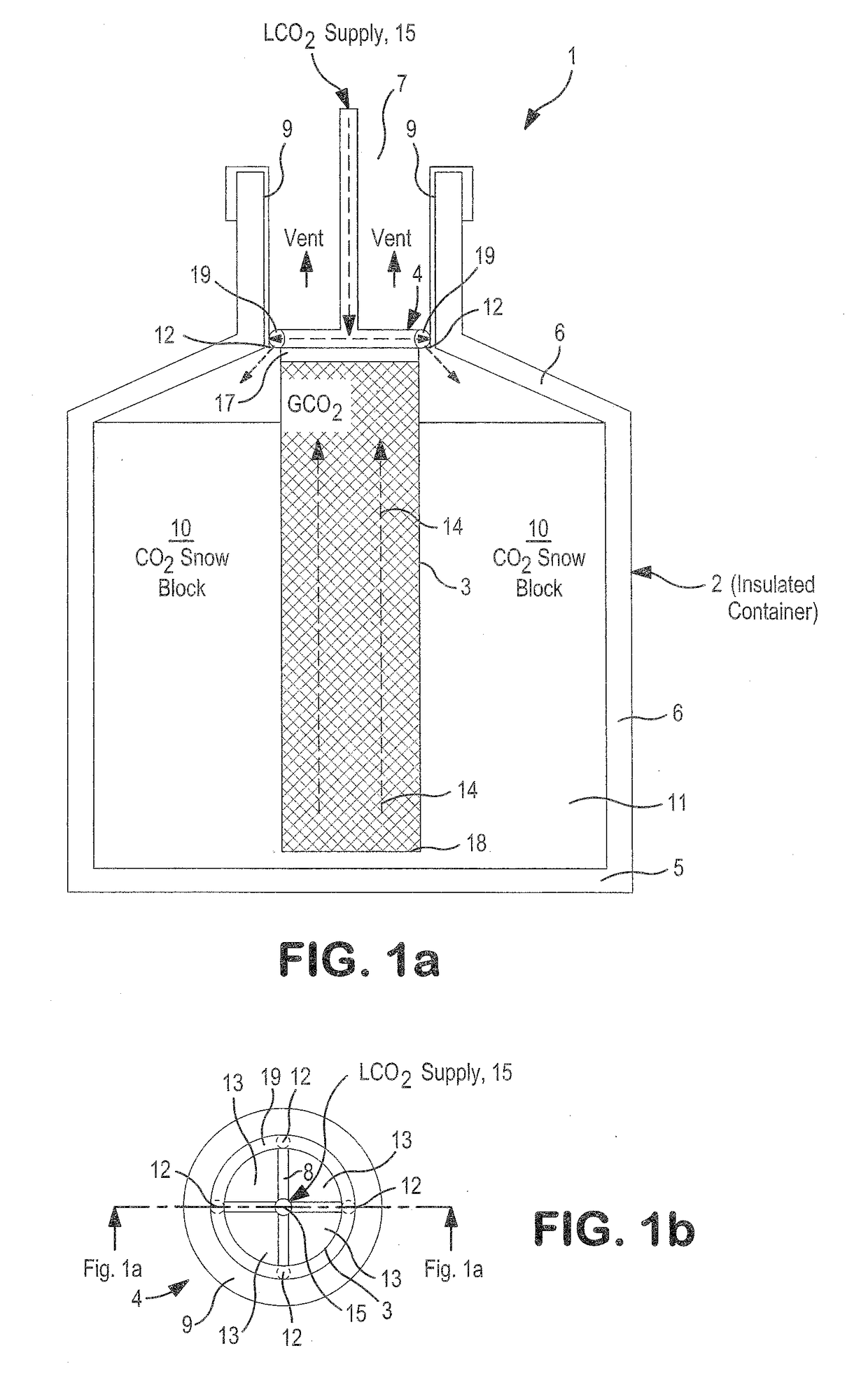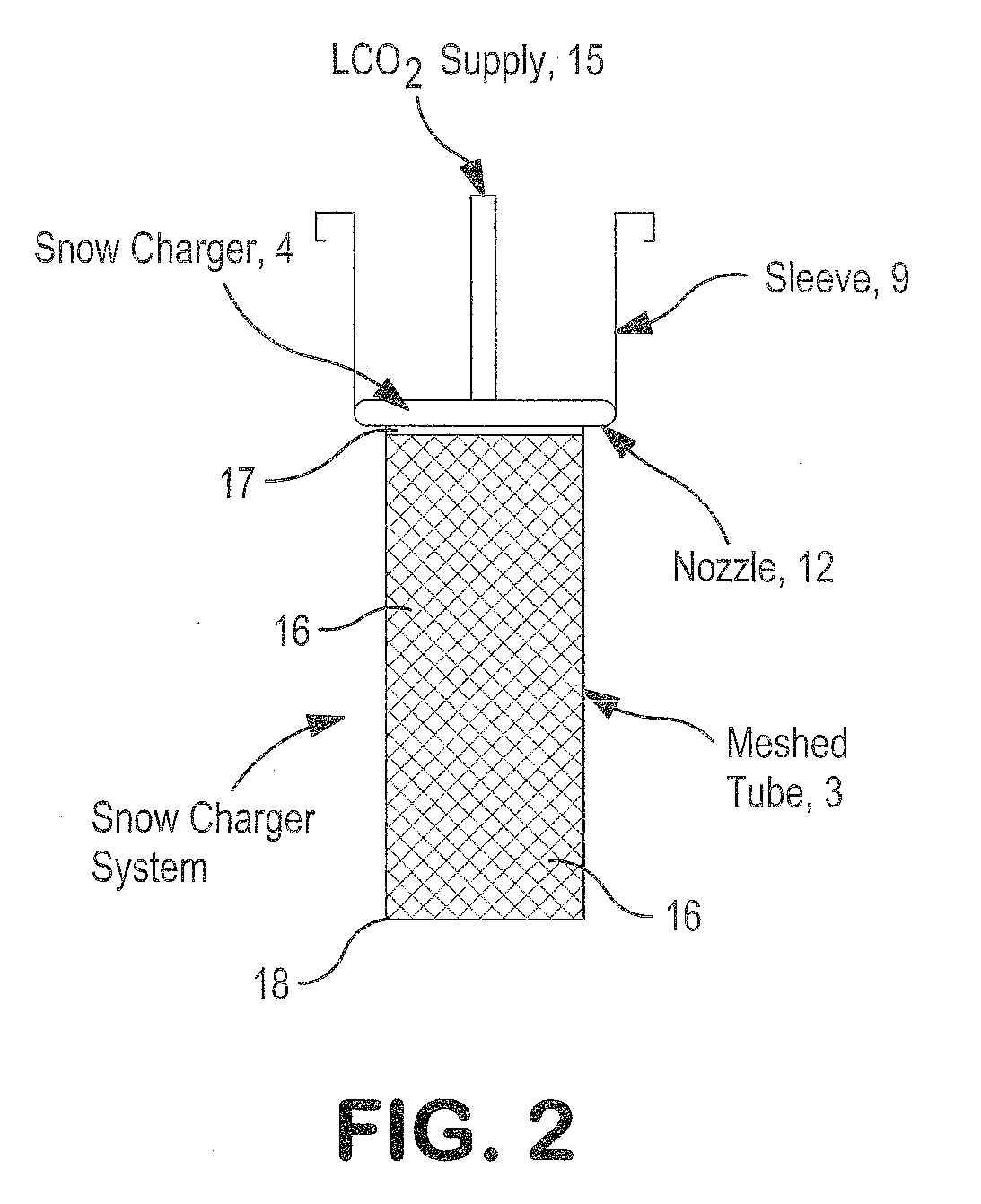Transportable container, charger system, method and kit for generation of carbon dioxide snow block in-situ within the transportable container for preservation of items stored therewithin
- Summary
- Abstract
- Description
- Claims
- Application Information
AI Technical Summary
Benefits of technology
Problems solved by technology
Method used
Image
Examples
example 1 (
Invention)
[0101]In accordance with the principles of the present invention, a prototype kit as shown in FIG. 1a was fabricated and assembled to generate CO2 snow block. A cylindrical meshed tube was inserted and installed into the interior of a substantially cylindrical container. The container had an overall height of 19.4 inches (defined as the height spanning from the bottommost portion of the container 2 to the topmost portion of the container 2), a neck diameter of 3.58 inches and an overall diameter of 9.2 inches (defined as the widest portion of the container 2 from sidewall to sidewall). The total interior storage volume was about 6 liters with a top cover secured to the top of the container. The cylindrical meshed tube had a volume of about 1 liter.
[0102]A snow charger including a circular flow conduit network with multiple nozzles arranged along the periphery of the circular flow conduit network was connected to the top portion of the mesh tube. The central opening of the ...
example 2 (
Invention)
[0107]The temperature profile of the inventive prototype with CO2 snow block produced therein as described in Example 1 was evaluated and then compared with the temperature profile of the CO2 dry ice pellets contained in the standard shipper evaluated as described in Comparative Example 1.
[0108]The meshed tube and snow charger were removed from the container of the prototype kit. Thermocouples were then placed slightly below the bottom of the cover for the container. A top cover was placed onto the opening of the container.
[0109]Temperature measurements were obtained for almost 96 hours. The results indicated the prototype container with the CO2 snow block in-situ generated therein approached a temperature no warmer than −60° C. over 90 hrs. The results are shown in FIG. 8. The temperature at a given time represents an average of the temperature measurements obtained from the different thermocouples situated in the container. The temperature profile of the inventive protot...
example 3 (
Invention)
[0110]The effect of different R values on the performance of the prototype kit of the present invention was evaluated. As known in the art, the R value is measure of thermal resistance that is employed to quantify endurance, which is an indicator of the duration a certain item can be maintained within the container at a temperature no warmer than a certain pre-defined temperature. In the tests carried out herein, the pre-defined temperature not to exceed was −60° C. The same container as employed in Example 1 and Example 2 were used to carry out the tests. The container as manufactured initially was vacuum jacketed to a level of 1000 microns. The container included a vacuum port that allowed access to the vacuum insulated walls. A vacuum device was connected as necessary to the vacuum port to achieve different vacuum levels to evaluate the endurance.
[0111]In the first test, the endurance of the container at a vacuum insulated jacket of approximately 1000 microns was evalua...
PUM
 Login to View More
Login to View More Abstract
Description
Claims
Application Information
 Login to View More
Login to View More - R&D
- Intellectual Property
- Life Sciences
- Materials
- Tech Scout
- Unparalleled Data Quality
- Higher Quality Content
- 60% Fewer Hallucinations
Browse by: Latest US Patents, China's latest patents, Technical Efficacy Thesaurus, Application Domain, Technology Topic, Popular Technical Reports.
© 2025 PatSnap. All rights reserved.Legal|Privacy policy|Modern Slavery Act Transparency Statement|Sitemap|About US| Contact US: help@patsnap.com



